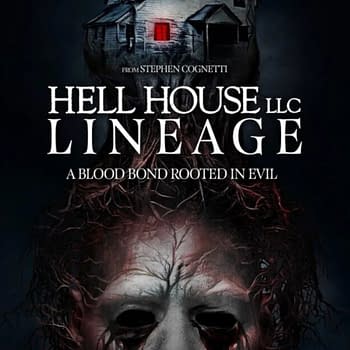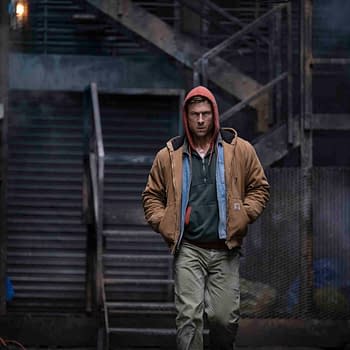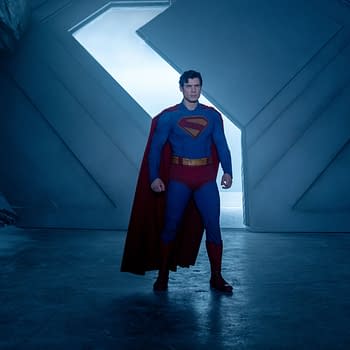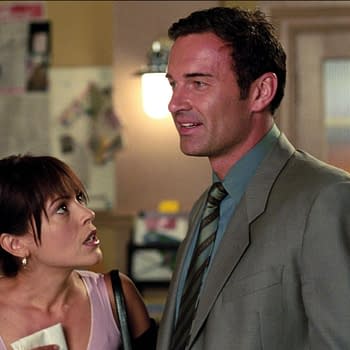Posted in: Movies, News | Tagged: HBO, hbo max, steven soderbergh, Warner Bros, warner bros hbo max
Steven Soderbergh Comments On WB/HBO Max 2021 Deal
Never one to be shy, director Steven Soderbergh has weighed in on this week's bombshell announcement by Warner Bros. to debut their 2021 slate on HBO Max and in theaters at the same time. His is a unique perspective, having worked with all types of budgets and release strategies in his decade's long work in Hollywood. In a leveled response that represents how the situation could be played from all angles, Steven Soderbergh told The Daily Beast that this situation is both practical for the situation and a chance for some real change in both release windows and the theatrical business model as a whole. Read his comments below.
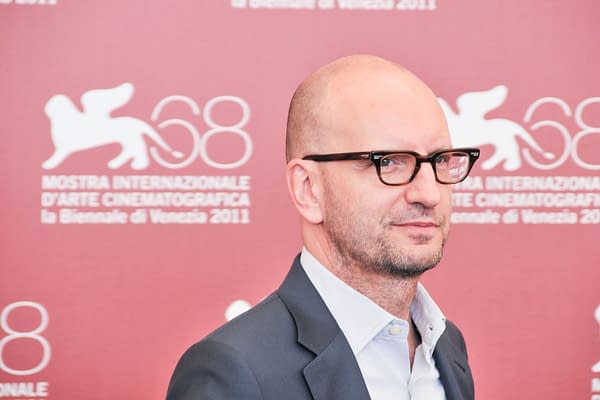
Steven Soderbergh Makes Sense, Of Course
"[The streaming push is] just a reaction to an economic reality that I think everybody is going to have to acknowledge pretty soon, which is that even with a vaccine, the theatrical movie business won't be robust enough in 2021 to justify the amount of P&A you need to spend to put a movie into wide release. There's no scenario in which a theater that is 50 percent full or at least can't be made 100 percent full is a viable paradigm to put out a movie in. But that will change. We will reach a point where anybody who wants to go to a movie will feel safe going to a movie."
"I think somebody sat down and did a very clear-eyed analysis of what COVID is going to do in the next year, even with a potential vaccine, and said, I don't see this as being workable in 2021. Because let's be clear: there is no bonanza in the entertainment industry that is the equivalent of a movie that grosses a billion dollars or more theatrically. That is the holy grail. So the theatrical business is not going away. There are too many companies that have invested too much money in the prospect of putting out a movie that blows up in theaters—there's nothing like it. It's all going to come back. But I think Warners is saying: not as soon as you think."
"I think it'll finally push the studios and NATO (National Association of Theater Owners) to have some practical and realistic conversations about windowing," Soderbergh told The Daily Beast, "because there needs to be more fluidity. There's not going to be one template that fits every movie. Every movie is different. You need the flexibility. If you're in a bad situation, and you've got a movie that you opened wide, and you know Friday at 3 p.m. it's not working, you need to be able to get it on a platform as soon as possible. You spent so much money trying to make this work, and if it didn't, you should be able to do whatever you want to do. Theaters are going to be pushing you out anyway because you bombed."
This part about how the business could change because of all this for the better and adapt more was the most interesting to me: "One variable that hasn't really been scaled up is that, now that we live in an all-digital world, all of these big theater chains have the ability to turn themselves into repertory cinemas in which they screen films from any period of the last 120 years for audiences who've never seen them in a theater. There are all these movies from the '70s, '80s, '90s, and early aughts that nobody has seen in a theater," and continued further on with, "The other thing is, every time we think that it's just going to be tentpoles and blockbusters—and art-house movies on the other end—something shows up in the middle and works. Downton Abbey made a lot of money. That movie was coming out when we were in discussions with Warners about Let Them All Talk, and I pointed to that as an example of what I consider to be our audience. That's our demographic; that's the audience I want. And look, they showed up for that."




